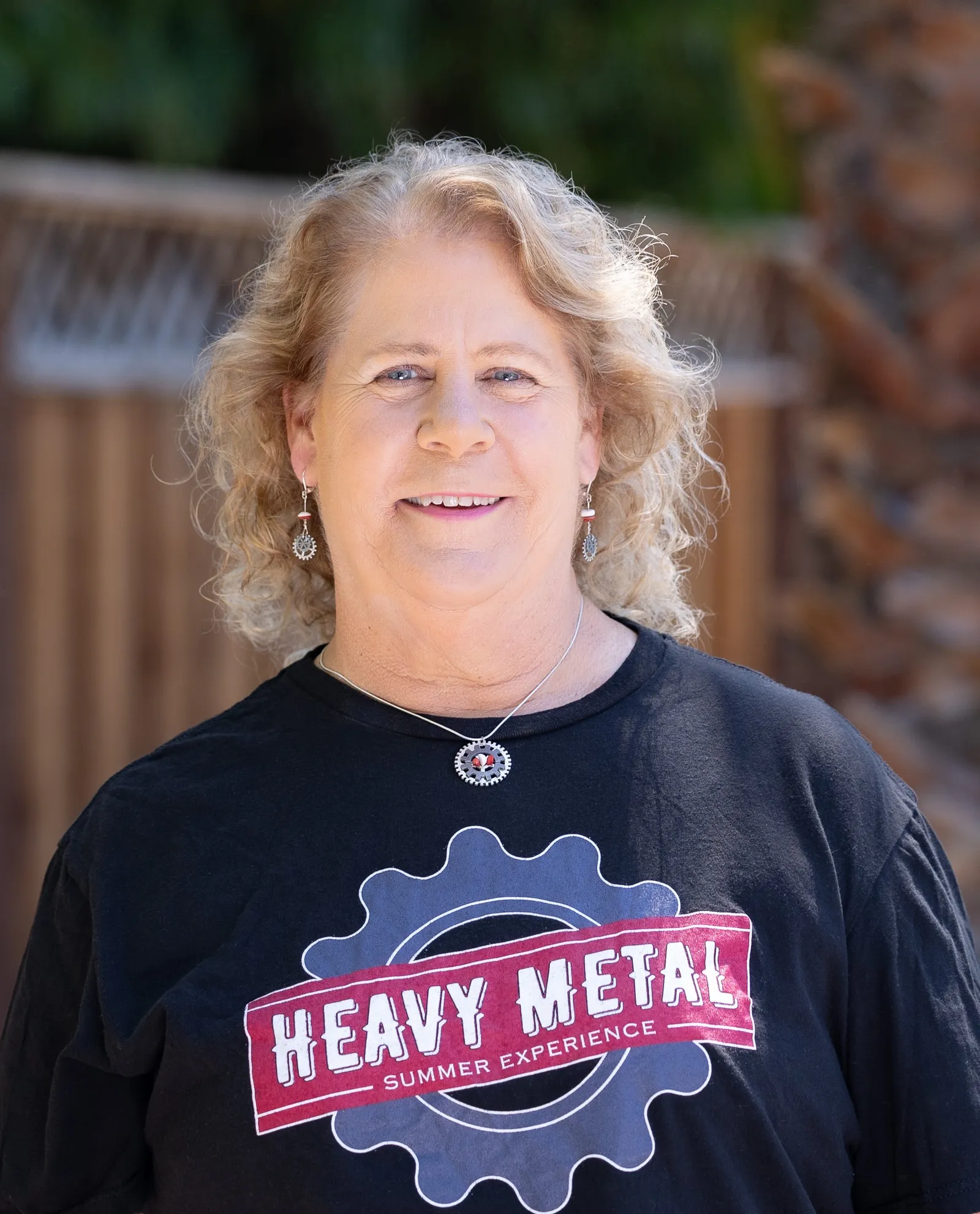This audio is automatically generated. Please let us know if you have any comments.
The construction industry is facing a major labor shortage, but programs and people across the country are working locally to solve the problem. This series highlights efforts that help recruit the next generation of construction professionals. Read previous posts here.
Do you know of any groups that help attract workers to the construction industry? Let us know.
In high school, Alejandra Rios came across a flyer for the inauguration Heavy metal summer experience.
But it wasn’t an opportunity to follow a Metallica or Iron Maiden tour. Instead, Rios attended a summer camp in the Seattle area with the intention of introducing kids his age to construction trades.
Rios, 21, had previously worked with metal, taking jewelry classes in high school and learning the basics of welding and metalworking.
“It made me think that I would want to do this on a bigger scale, I really enjoyed it,” Rios told Construction Dive.
Today he does marine maintenance at the Port of Seattle as an apprentice, more than half of officer status. Without the Heavy Metal Summer Experience, a nonprofit made up of members of the National Association of Sheet Metal and Air Conditioning Contractors, he may have attended technical college or practiced accounting, he said.
Rios attended HMSE in 2021, when he majored in HVAC and metal work. At the time, it had only two camps, one in Seattle and one in the San Francisco Bay Area, for a total of 28 students. By 2024, 36 camps in the US and Canada reached 500 children, according to Angie Simon, founder of HMSE. In 2025, this number will continue to grow.
Origins of heavy metal
Simon, who served as SMACNA’s 2020 national president, said the summer camp came about when she and her colleagues wanted to find ways to reach teenagers who might not otherwise learn about the trades as a career. .

Angie Simon
Permission granted by HMSE
He coordinated with the HVAC service company Hermanson Co. in Seattle and Western Allied Mechanical in Union City, California, to formulate ideas for an educational program.
“We started to develop. What will we need to make a summer camp? What will we need to attract children? What will we need to teach them? And how long should it be?” Simon told Construction Dive.
The result was a 36-hour program hosted in the company’s stores. Several days a week for six weeks, high school students or recent graduates visited the shops for hands-on experiences while learning about trades such as HVAC and metal work, as well as the general construction industry such as at professional option.
But unlike other programs, HMSE is not a national organization that runs dozens of camps. Instead, Simon said her team worked to create what she calls “the easy button.” Instead of organizing each of the camps, HMSE developed the playbook for running its own camp or a similar one, so that interested partners can duplicate it.
And those guidelines provide flexibility, Simon said. Some are housed in union training centers rather than contractor shops. Some have focused on plumbing, piping or electrical work. And not everyone spreads the recommended minimum of 30 hours over several weeks.
For example, Stacy Zerr, executive director of the Kansas City Mechanical Contractors Association, said their camp runs from 7:30 a.m. to 3 p.m. each day.
“Camp is exhausting!” Zerr told Construction Dive in an email. “It’s full of hands-on activities. … Ultimately, they should feel a sense of satisfaction in seeing how they can use their hands and their minds to produce something that can help build our worlds.”
Impact for campers and organizers
Reuben Umanskiy, 18, didn’t want to attend HMSE when his robotics teacher recommended it. However, his teacher urged him further, saying it would be better than “wasting” the summer on video games and offering extra credit. He enjoyed it enough to attend the following summer, even without another offer of extra credit.
“Right away you get to weld, they give you all the protective gear,” said Umanskiy, now a material handler for Hermanson in Seattle.
“It’s pretty epic. I started, my first day was Sept. 4, right out of high school. I get to work in construction,” Umanskiy said. His passion for this would not have existed without HMSE.
Both Rios and Umanskiy mentioned that they hadn’t previously looked at construction as a career, as it’s not something they were directly exposed to. They were used to seeing jobs on the side of the road or behind fences.
Zerr said that’s the kind of impact she and other camp directors are looking for, since most high school students don’t have the same hands-on experience with any kind of trade, even at an entry level like a carpentry class.
“It’s hard to know if you have a gift or passion for something when you’ve never had the exposure or opportunity to try it,” Zerr said. “HMSE is all about giving kids the chance to try something new.”
Simon encouraged more contractors to take action, either by hosting an HMSE or finding some other method to stem the ongoing skilled labor crisis.
“I think it’s time we stop talking about it and start doing something about it,” Simon said.

